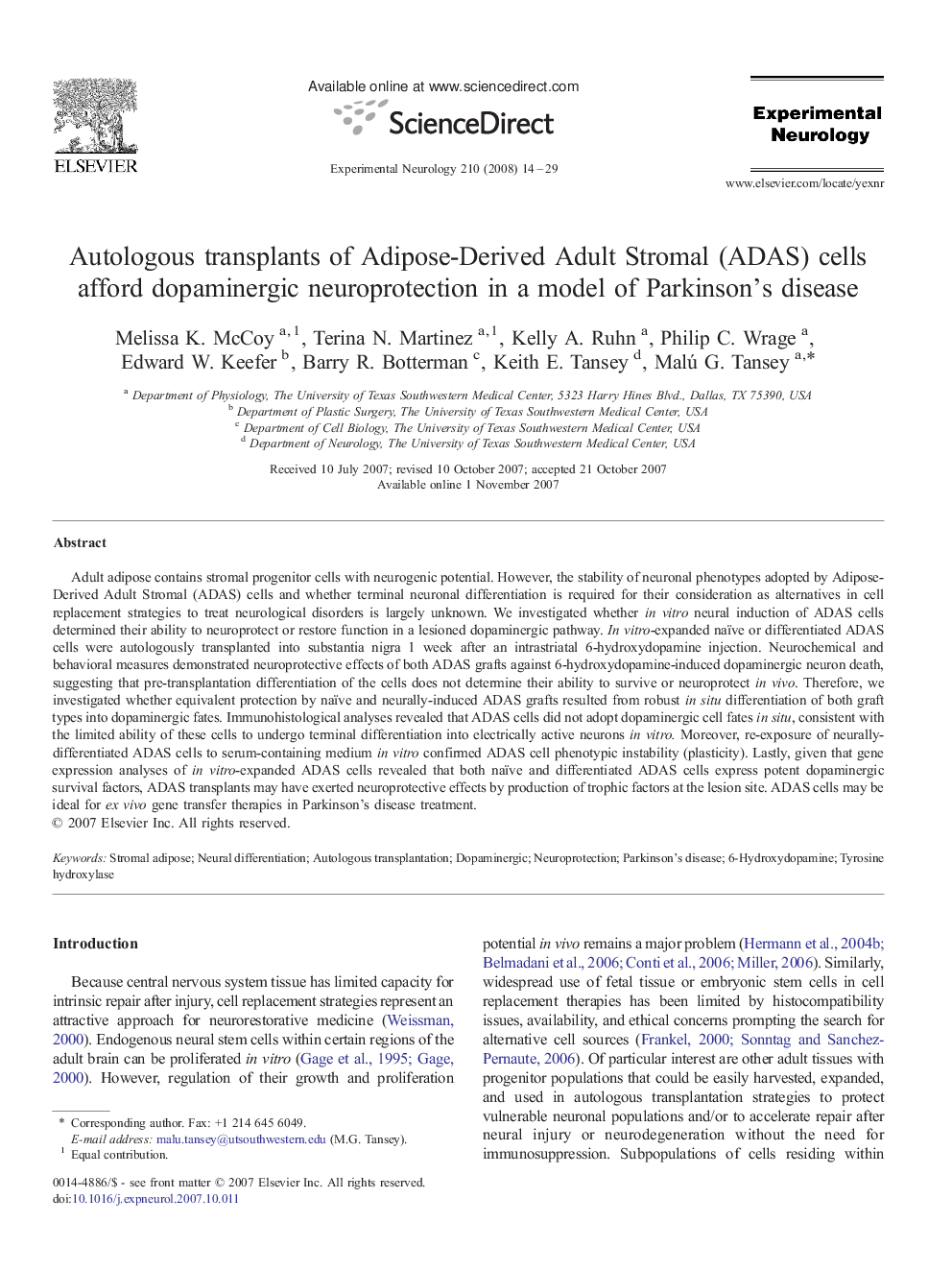| Article ID | Journal | Published Year | Pages | File Type |
|---|---|---|---|---|
| 3056810 | Experimental Neurology | 2008 | 16 Pages |
Adult adipose contains stromal progenitor cells with neurogenic potential. However, the stability of neuronal phenotypes adopted by Adipose-Derived Adult Stromal (ADAS) cells and whether terminal neuronal differentiation is required for their consideration as alternatives in cell replacement strategies to treat neurological disorders is largely unknown. We investigated whether in vitro neural induction of ADAS cells determined their ability to neuroprotect or restore function in a lesioned dopaminergic pathway. In vitro-expanded naïve or differentiated ADAS cells were autologously transplanted into substantia nigra 1 week after an intrastriatal 6-hydroxydopamine injection. Neurochemical and behavioral measures demonstrated neuroprotective effects of both ADAS grafts against 6-hydroxydopamine-induced dopaminergic neuron death, suggesting that pre-transplantation differentiation of the cells does not determine their ability to survive or neuroprotect in vivo. Therefore, we investigated whether equivalent protection by naïve and neurally-induced ADAS grafts resulted from robust in situ differentiation of both graft types into dopaminergic fates. Immunohistological analyses revealed that ADAS cells did not adopt dopaminergic cell fates in situ, consistent with the limited ability of these cells to undergo terminal differentiation into electrically active neurons in vitro. Moreover, re-exposure of neurally-differentiated ADAS cells to serum-containing medium in vitro confirmed ADAS cell phenotypic instability (plasticity). Lastly, given that gene expression analyses of in vitro-expanded ADAS cells revealed that both naïve and differentiated ADAS cells express potent dopaminergic survival factors, ADAS transplants may have exerted neuroprotective effects by production of trophic factors at the lesion site. ADAS cells may be ideal for ex vivo gene transfer therapies in Parkinson's disease treatment.
